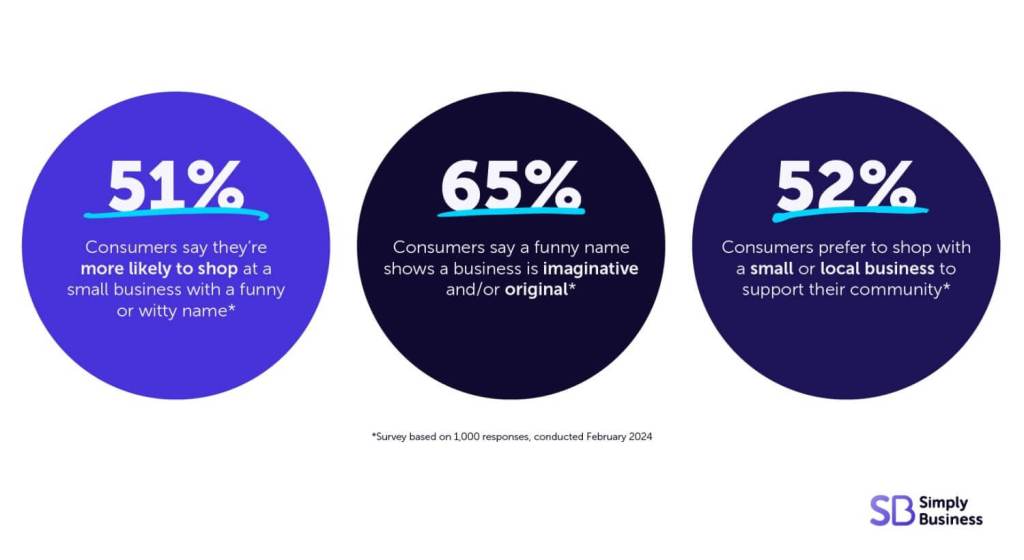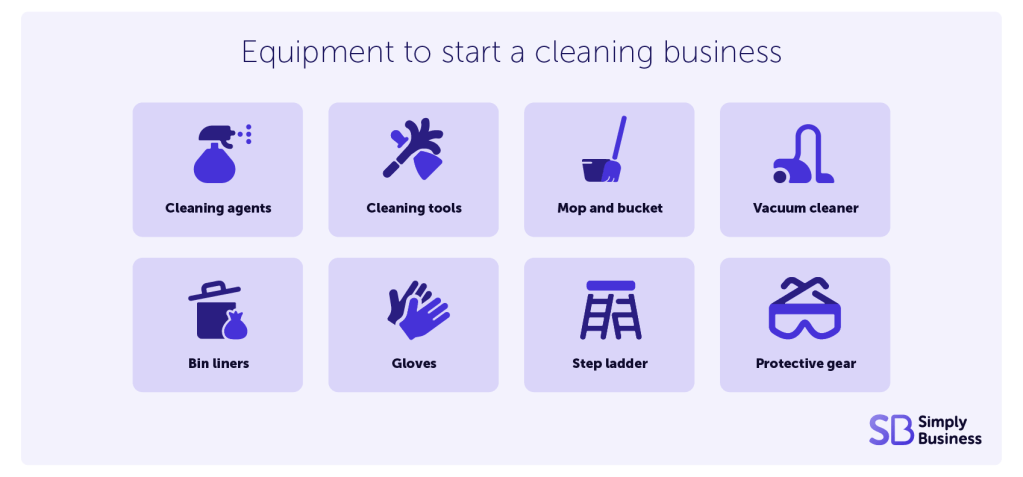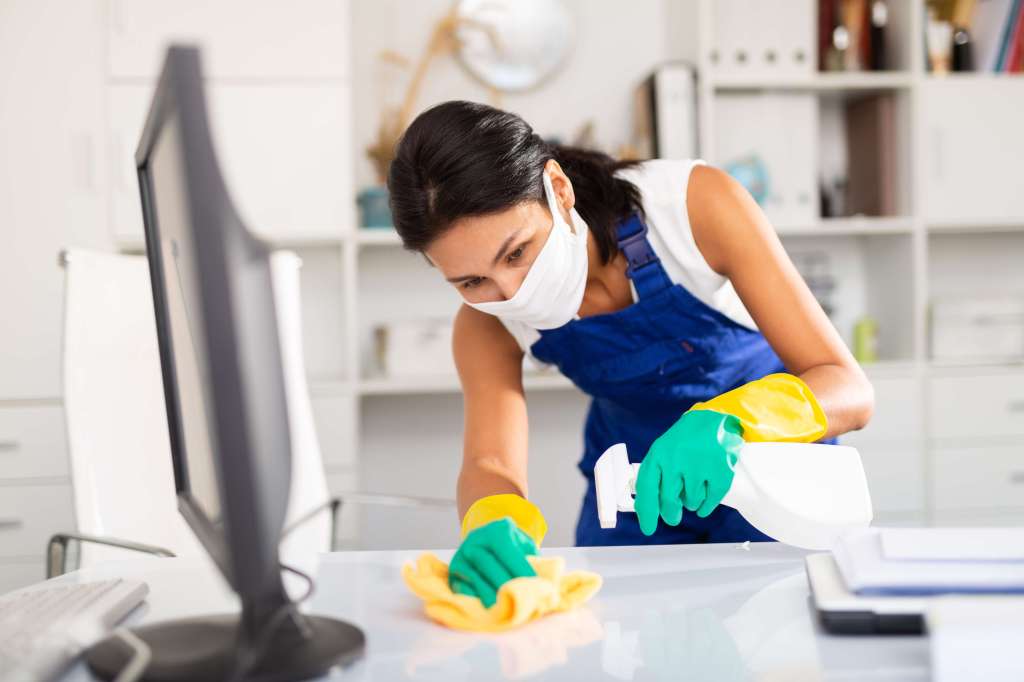Cleaning business quick start guide
Before you choose a side hustle, there are a few things you need to consider in order to If you’re looking to start a cleaning business, start by defining the specific services you’ll offer and choose a suitable legal structure – such as a sole trader or limited company.
Once you’ve handled these foundational steps, look into getting the right insurance to help protect your new venture and select a memorable business name that will stand out.
With the administrative side in place, you can focus on your strategic business plan and purchase the necessary equipment to get started. As you set your rates, remember to also plan for marketing and managing your finances effectively.
By avoiding common business mistakes and keeping an eye on potential growth opportunities, you can set your cleaning business up for long-term success.
Thinking about starting your own cleaning business? Whether you’re planning to work solo, run a small team, or grow a larger operation, the UK cleaning industry offers plenty of opportunities.
This guide will walk you through every stage – from legal setup to finding your first clients – so you can launch with confidence.
How to start a cleaning business in 11 simple steps
1. Decide on your cleaning services
First, choose the type of cleaning you want to offer. This decision will shape your pricing, marketing, and equipment needs.
Popular cleaning options include:
- domestic cleaning – regular home cleans, deep cleans, spring cleans
- commercial cleaning – offices, shops, and industrial premises
- specialist cleaning – end-of-tenancy, carpet cleaning, biohazard cleaning
- exterior cleaning – windows, gutters, pressure washing
Top tip: Research local demand. Check community boards, Facebook groups, and job sites to see what’s in demand in your area.
2. Choose your business structure
How you register your business affects your tax, paperwork, and liability.
| Structure | Pros | Cons |
| Sole trader | Simple setup, full control, fewer reporting requirements | You’re personally liable for debts |
| Limited company | Greater credibility, limited liability | More admin and accounting duties |
Whichever structure you choose, you can register online on the government website:
- sole trader: register with HMRC
- limited company: register with Companies House
3. Sort your legal and insurance requirements
As a cleaner, your clients are trusting you to care for their property. That’s why finding insurance for your cleaning business can help to protect both you and your clients.
You may need:
- public liability insurance – helps to cover accidents or damage caused by your work
- employers’ liability – usually a legal requirement if you hire staff
- specialist cover – if you work at heights, with hazardous materials, or in sensitive environments
You’ll also need to follow the government’s Health and Safety Executive guidelines for safe working practices.
4. Choose a business name
One of the most important (and fun) parts of starting any business is choosing the right company name. Not only is this an important step if you’re setting up a limited company, it’s also a way to attract customers.
We have a whole guide that goes through how to come up with a memorable company name, plus how to register it.
But a good place to start is to remember that the UK loves a funny business name – take a look at what the data says:

5. Write a business plan
A business plan helps you focus your efforts and can also help you gain funding by showing you have a clear plan and understanding of your business. Make sure you include your:
- services and target customers
- pricing strategy
- marketing plan
- equipment and supplies list
- financial forecasts
You can learn more about this in our step-by-step guide to writing a business plan.
6. Buy the right equipment
Investing in quality tools can help you to save time and deliver great results. A basic kit to start out with might include:
- cleaning agents
- cleaning tools
- mop and bucket
- vacuum cleaner
- bin liners
- gloves
- step ladder
- protective gear

7. Set your prices
Pricing depends on:
- service type (domestic vs specialist)
- location
- experience and reputation
The current UK average hourly rate for independent cleaners in 2025 is £25 (Checkatrade). But our guide to setting a freelance rate can help you know how much to charge. And remember to always check local competition and factor in your travel, supplies, and time.
8. Market your cleaning business
To get the most out of your marketing strategy, combine both online and offline methods.
Online marketing methods include:
- creating a simple website with your services, prices, and contact information
- creating a Google Business Profile and adding yourself to local directories
- posting before and after photos on social media
Offline marketing methods include:
- distributing flyers in local neighbourhoods
- networking with local businesses that could use your services – such as estate agents, landlords, and letting agencies
- offering referral discounts to existing clients
9. Manage your finances
Properly managing your finances is key to setting up any business, so it’s a good idea to:
- Open a separate business bank account
- Keep records of all income and expenses
- File your taxes on time (either Self Assessment or company tax return)
- Consider using accounting software to track payments and invoices
10. Avoid these common business mistakes
- Underpricing – can leave you both overworked and underpaid
- Overbooking – leads to burnout and poor service
- Neglecting safety – can result in fines or injury
- Not getting insurance – risks financial loss if something goes wrong
11. Plan for growth
Once your cleaning business is up and running, you can:
- hire staff to take on more clients and larger jobs
- add new and specialist services (such as oven cleaning or upholstery cleaning)
- target new sections – such as Airbnb properties or schools
You can even study cleaning courses to get specialised in more niche areas. For more information on cleaning courses, contact the British Institute of Cleaning Science.
Top tips from a professional cleaner
Another way to become a cleaner is to get advice from someone with experience in the industry. To help, we reached out to Harriet Thomas, founder of Calm Oasis Cleaners, to give you some top tips for starting a cleaning business. Watch Harriet guide you through the process in this video, or read the tips below.
1. Be prepared for a challenge
Starting a business from scratch can be tough, but it can also be hugely rewarding. Think about ways to manage variations in your income and, as your business grows, get ready to take on the responsibility of managing staff. And above all, don’t get disheartened when the going is tough – as Harriet says, “stay true to your vision!”
2. Take advice
Talk to as many people as possible – by canvassing opinion you can help to make sure that you’re on the right track. And crucially, look into speaking to a range of financial advisors.
3. Get ready for unusual requests
Cleaning is an incredibly personal business, and your clients will each have their own needs. It’ll keep you on your toes.
4. Think about catering to landlords
By making yourself an end-of-tenancy pro, you can serve a large and growing market. Many landlords simply don’t have the time to conduct thorough cleans between tenants, so this can be a great niche for a cleaning business.
5. Don’t forget insurance
Your customers will want to be confident that you’re covered if something goes wrong while you’re working in their property. And don’t forget, if you’re employing people, you’re legally obliged to take out employers’ liability insurance.
How to start a cleaning business – key takeaways
- Pick your niche, set up legally, and get insured
- Quality equipment and great customer service are your best marketing tools
- Start small, track your finances, and expand strategically
Starting a cleaning business: FAQs
How much can I earn from a cleaning business in the UK?
Self-employed cleaners can expect to earn between £20,000 – £30,000 a year, according to Checkatrade.
Do I need qualifications to be a cleaner?
You don’t need formal qualifications to become a cleaner but training can help you stand out from the crowd by giving you experience in more niche areas.
Can I start as a part-time cleaner?
Yes, many self-employed cleaners start part-time around existing commitments and grow as demand increases.
More guides for small businesses
- How to start a business
- Self-employed tax deductible expenses: what can I claim?
- How to do market research: an affordable guide for small businesses
- What type of business insurance do I need?
Ready to set up your cover?
As one of the UK’s biggest business insurance providers, we specialise in public liability insurance and protect more trades than anybody else. Why not take a look now and build a quick, tailored quote?
